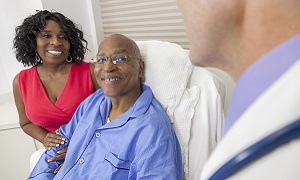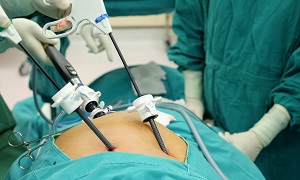Best Doctors in India for Esophagectomy
Best Hospitals in India for Esophagectomy
- City: Bengaluru, India
Hospital Highlights:
- Fortis Hospital Bannerghatta, Bengaluru was established in 2006.
- The hospital is a 276 bedded multi-specialty tertiary care facility.
- The hospital specializes in cutting-edge medical technology and dedicated patient care services.
- The hospital is equipped with state-of-the-art technologies like trans-radial angioplasty, trans-abdominal cardiac surgery, and computerized TKR navigation surgery.
- The hospital provides specialty medical services in cardiology, cardiac surgery, orthopedics, neurology, neuro-surgery, GI, and Minimal Access Surgery (MAS).
- City: Chennai, India
Hospital Highlights:
- Fortis Malar was established in 1992 and was formerly known as Malar Hospital.
- The hospital specializes in cutting-edge medical technology and dedicated patient care services.
- The hospital is multi-specialty, tertiary care facility with 180 beds.
- The hospital offers comprehensive medical care in specialties such as cardiology, cardio-thoracic surgery, neurology, neurosurgery, orthopedics, nephrology, gynecology, gastroenterology, urology, pediatrics, and diabetes.
- City: New Delhi, India
Hospital Highlights:
- Established in 1996, Pushpawati Singhania Research Institute is one of the top hospitals in the NCR region, as well as one of the top facilities in India for gastroenterology. The hospital is one of South Asia’s first institutes in medical and surgical treatment for diseases related to digestion.
- The hospital is equipped with state-of-the art facilities coupled with the latest equipment as well as renowned consultants from various parts of India as well as other parts of the world.
- City: New Delhi, India
Hospital Highlights:
- State-of-the-art technology and devoted healthcare professionals have been brought together under one roof at Venkateshwar Hospital to provide genuine medical care. The hospital’s professionals work together as a team to deliver the best possible treatment to their patients, using the most sophisticated equipment and information technology.
- Venkateshwar Hospital’s mission is to attain global excellence in healthcare by employing evidence-based, ethical clinical practices and cutting-edge technology by a team of highly skilled experts.
- City: New Delhi, India
Hospital Highlights:
- Sir Ganga Ram Hospital, New Delhi is known to provide the latest medical procedures with the latest technology in all of its units.
- The hospital has a team of reputed doctors, nurses, and healthcare professionals that ensure that patients receive quality care at affordable costs.
- Staffed with a team of highly qualified doctors, dedicated nurses, and paramedical and non-medical staff, the hospital aims to lead in healthcare delivery, medical education, training, and research.
- As per the vision of the founder, the hospital also provides free treatment to the economically weaker sections of society.
- Sir Ganga Ram Hospital also provides training to young doctors under the Diplomate in National Board(DNB) program. The DNB program at the hospital was started in 1984 and it is known for currently running the maximum number of DNB specialties in the country. It also has the distinction of having the first bone bank in India.
- City: Kerala, India
Hospital Highlights:
- Established in 2019, Apollo Adlux Hospital is the first Apollo Hospital in Kerala and the 73rd hospital owned by Apollo Group in India. With the state’s most advanced, comprehensive healthcare infrastructure and cutting-edge technologies, Apollo Adlux Hospital stands as an example of medical excellence in Kerala.
- With over 34 multi-specialty departments, the hospital believes in providing the best quality treatment to its patients at affordable rates, ensuring comfort at their difficult times.
- The 300-bed hospital is managed by a team of highly qualified and experienced experts who delivers exceptional hospitality to their patients and treats them with great compassion.
- With its affiliation with the Apollo Hospitals Group, the hospital aims in providing patients with top-notch healthcare services while also serving communities in Kerala.
- The hospital has good railway and road connections, and is conveniently close to Cochin International Airport.
- City: Gurugram, India
Hospital Highlights:
- Situated near DLF Cyber City, Gurugram, Narayana Superspecialty Hospital is one of the top medical facilities in the Delhi NCR region, catering to the needs of the people. Known for its commitment to quality medical care and patient service, the hospital is a state-of-the-art facility with planned and well-equipped sections, which includes a spacious OPD area as well as comfortable patient rooms.
- It is the closest super-specialty hospital from Indira Gandhi International Airport towards Gurugram, and also the nearest super specialty hospital from DLF Cyber City. It is also close to major residential areas in Gurugram.
- It is part of the renowned Narayana Health Group. Established in 2000, by Dr. Devi Shetty, a renowned cardiac surgeon, it has grown to be one fo India’s leading healthcare groups.
- City: Noida, India
Hospital Highlights:
- Fortis Hospital, Noida, stands as one of the oldest and most trusted healthcare institutions in the region, setting a benchmark for comprehensive medical care.
- As the second mega hub hospital in the Fortis Healthcare Group, Fortis Hospital, Noida, upholds a legacy of trust among more than 1.2 million patients. By integrating top-tier professionals with cutting-edge technology, the hospital delivers superior treatment across various medical disciplines.
- Specializing in advanced Neurosciences, Orthopedics, Kidney and Liver Transplant Programmes, Fortis Hospital, Noida has successfully performed over 1,500 transplants, solidifying its reputation as a leader in specialized medical interventions.
Esophagectomy
Esophagectomy is a surgery for removing part of the esophagus, a tube that connects the throat to your stomach. Its purpose is to move food that has been swallowed by your stomach.
The procedure can involve removing a part of the stomach as well. This procedure is generally used for esophagus cancer, and also for Barrett’s esophagus if there are any aggressive precancerous cells. This procedure might also be recommended when prior attempts to save the esophagus fails.
Purpose
The most common reason for esophagectomy is esophageal cancer. It can be performed to remove cancer or to relieve symptoms.
The extent of the procedure and how much of the esophagus is removed will be depending on multiple factors, which include disease size and location. Sometimes, the stomach or intestine is connected to a piece of the esophagus that is left in place at the time of the surgery.
Preparation
If you have any concerns you will need to discuss them with your doctor. If you are having cancer, your doctor might recommend radiation therapy or chemotherapy or both, before he/she recommends esophagectomy. If you smoke regularly, it is necessary to quit before the surgery, as well as after, as smoking increases your risk of complications after surgery.
Ask your doctor if you can continue to take your medications before your surgery. This is important especially if you are taking blood thinners, as they need to be stopped some days before your surgery.
It is also important for you to stop eating or drinking the night before your surgery. Sometimes you might be recommended a liquid diet around two to three days prior to your surgery.
Your treatment team can recommend you to bring several items to the hospital which can include your medications, personal care items, loose and comfortable clothing, etc. You can also bring items to help you relax, such as books or portable music players.
Before you are admitted to the hospital, it is important to talk to your family as well, regarding your stay and whether you will need any help after you return. You should receive specific instructions from your doctor or healthcare team that you will need to follow during the recovery period.
Procedure
The procedure involves removing some or most portions of your esophagus. Sometimes, if cancer is involved, the procedure can also involve a part of the top of the stomach as well as nearby lymph nodes.
Depending on your situation, your surgeon might choose any of these two techniques:
Open esophagectomy
In open esophagectomy, your surgeons will create one or more large incisions in your neck, chest or abdomen. Your surgeon can choose a transthoracic esophagectomy, in which your esophagus is going to be removed through the incisions in the abdomen and chest. Or the surgeon might also choose to perform a transhiatal esophagectomy, in which the incisions are performed in the abdomen and neck. Sometimes, a neck, chest and abdominal incision can be required, in this case it is called a three-field esophagectomy.
Minimally invasive esophagectomy
Minimally invasive esophagectomy involves removing the esophagus through several tiny incisions in the abdomen (laparoscopic) or the chest (thoracoscopic). If laparoscopic surgery is used, your surgeon inserts instruments with a camera-tipped device through the incisions. The device will help him/her view and perform the operation without dividing your muscles or causing damage to a rib. Sometimes this procedure can be robot-assisted.
Aftercare & recovery
Recovery from this procedure will generally depend on which method was used. Generally, a long hospital stay is required. A feeding tube is put into your belly, which can stay for a month or two. This tube is meant to give you nutrition and medication as needed as you recover.
You will receive instructions on how to care for your incisions before you leave the hospital. You will also receive certain medications for pain, infection, blood clots, etc.
Your provider should let you know for how long you should avoid lifting any kind of heavy objects. Rest as required and avoid any movements that can cause pain. Remember to hold a pillow over your surgical incisions before you cough or sneeze.
Avoid hot baths or swimming pools until your healthcare team says it is okay.
Your healthcare team might direct you to change your diet. You can ask them when it is safe for you to drive and resume your normal routine.
Inform your healthcare team if you experience:
- Fever
- Difficulty in breathing and/or a persistent cough
- Any new or worsening pain.
- Trouble eating or drinking, or if you experience nausea or vomiting after eating
- Yellowing of the skin or whites of your eyes.
- Diarrhea or loose bowel movements.
- Burning in the throat while you lay down or during sleep
Risks
Esophagectomy has a few risks of complications and some of them include:
- Cough
- Bleeding
- Infection
- Leakage from the surgical connection of your stomach and esophagus
- Changes in your voice
- Respiratory complications like pneumonia
- Acid or bile reflux
- Nausea, vomiting or diarrhea
- Swallowing difficulties
- Atrial fibrillation
Although it is rare, in some cases, death is also a possibility.












